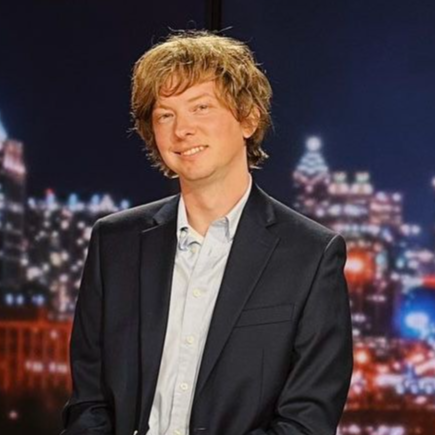College athletes making most of creative NIL opportunities
The NIL era is just getting started. It’s new terrain for collegiate athletes to explore, an opportunity to finally capitalize on and expand their personal brands. Now a year into the new NIL world, we’re seeing how creative some partnerships can be.
Some are simple: Florida, LSU, Oklahoma and Central Florida are selling jerseys with athletes’ names on the back, with a portion of the earnings going to the individual. Connecticut basketball star Paige Bueckers became the first Gatorade athlete. Clemson quarterback D.J. Uiagalelei was featured in a Dr. Pepper Fansville commercial.
Some are more complex, such as USC quarterback Caleb Williams becoming a part-owner and ambassador of “Faculty,” a grooming brand, and Oregon pass rusher Kayvon Thibodeaux becoming the first college athlete to create his own cryptocurrency, coined $JREAM. The cryptocurrency funds The JREAM Foundation, a non-profit that aids underprivileged youth.
Locally, we’ve seen star athletes like Georgia defensive tackle Jordan Davis benefit. If you’ve driven through downtown Atlanta, perhaps you’ve seen him on Morgan & Morgan’s billboard. The sign reads “Size Matters,” a nod to Davis’ hulking figure (6-foot-6, 341 pounds). College athletes were long forbidden by NCAA rules from receiving compensation for endorsements, autographs and the like, or from using their “name, image and likeness” (NIL) in any way to earn profits.
The Braves became the first MLB team to dive into the NIL market. They invited college athletes to partner with the team, and after receiving over 500 inquires, they chose two athletes who met their criteria of being “local,” a Braves fan and active on social media.
Georgia gymnast Rachel Baumann and Georgia Tech quarterback Jordan Yates (currently in the transfer portal) were the first college athletes to partner with the Braves. The pair were paid a small stipend (around $500) to advertise their experiences at Truist Park on social media. They also had links to purchase Braves tickets in their bios. The Braves will tweak their NIL approach this upcoming season, though the team hasn’t yet set its plans.
The NIL era, especially in its untapped state, will create endless opportunities for collegiate athletes to finally capitalize on their talent and brand. This was just the earliest iteration.
Some of the creative NIL deals in the past year:
- LSU gymnast Olivia Dunne is among those who’ve benefited most from NIL. The 19-year-old reportedly earned more than $1 million last year, building a TikTok following north of 4.9 million accounts.
- Former Ohio State quarterback Quinn Ewers, a top recruit, signed multiple deals, including one with GT Sports Marketing for a reported $1.4 million. He didn’t attempt a pass last season and handed the ball off just twice before transferring to Texas, where he has a clearer path to playing time.
- UCLA volleyball player Mac May signed with Mercedes in a deal that pays her for appearances and social-media promotion.
- In perhaps the most appropriate NIL deal yet, Alabama football player Ga’Quincy “Kool-Aid” McKinstry signed an agreement with Kool-Aid in August.
- Florida State quarterback McKenzie Milton and Miami quarterback D’Eriq King became co-founders of Dreamfield, a company built to arrange paid appearances and other earning opportunities for college athletes.
Milton also dipped into the growing NFT market with digital trading cards, according to an ESPN report. King signed a deal with the Florida Panthers – the first such agreement between a college athlete and professional sports team – that required he attend games and events, along with working with the Panthers’ social-media team.
- Twins Haley and Hanna Cavinder, star basketball players at Fresno State (and currently in the transfer portal), capitalized on their TikTok fame. They signed a deal with Boost Mobile that put them on a billboard in Times Square. They’ve also had multiple other deals with companies such as Six Star Nutrition and World Wrestling Entertainment (WWE). The deal with WWE, reportedly worth at least $100,000, requires their social media promotion and appearance at events.
- Arkansas receiver Trey Knox and his dog, Blue, had a partnership with PetSmart. The pair appeared on social media and marketing videos.
- What about players who’ve yet to even pick a college? Prized quarterback recruit Arch Manning, who’s targeted by Georgia and Alabama, among others, is valued at $1.6 million per On3′s valuations. Manning doesn’t even use social media.
Manning is one of three high school athletes who received valuations over $1 million, joining basketball players Bronny James (LeBron’s son) and Mikey Williams, who has 3.6 million followers on Instagram.
NIL in Georgia: AJC coverage
Read more about Georgia college athletes and NIL, the Name, Image and Likeness, marketplace
College athletes making most of creative NIL opportunities
‘The Wild West’: College sports’ NIL era brings upheaval
NIL timeline: How we got here and what’s next
Michael Cunningham: NCAA creates NIL problems by clinging to dying ‘amateur’ model
Georgia’s Jordan Davis a big beneficiary of NIL
Sarah Bates leverages athlete status, TikTok into NIL success


